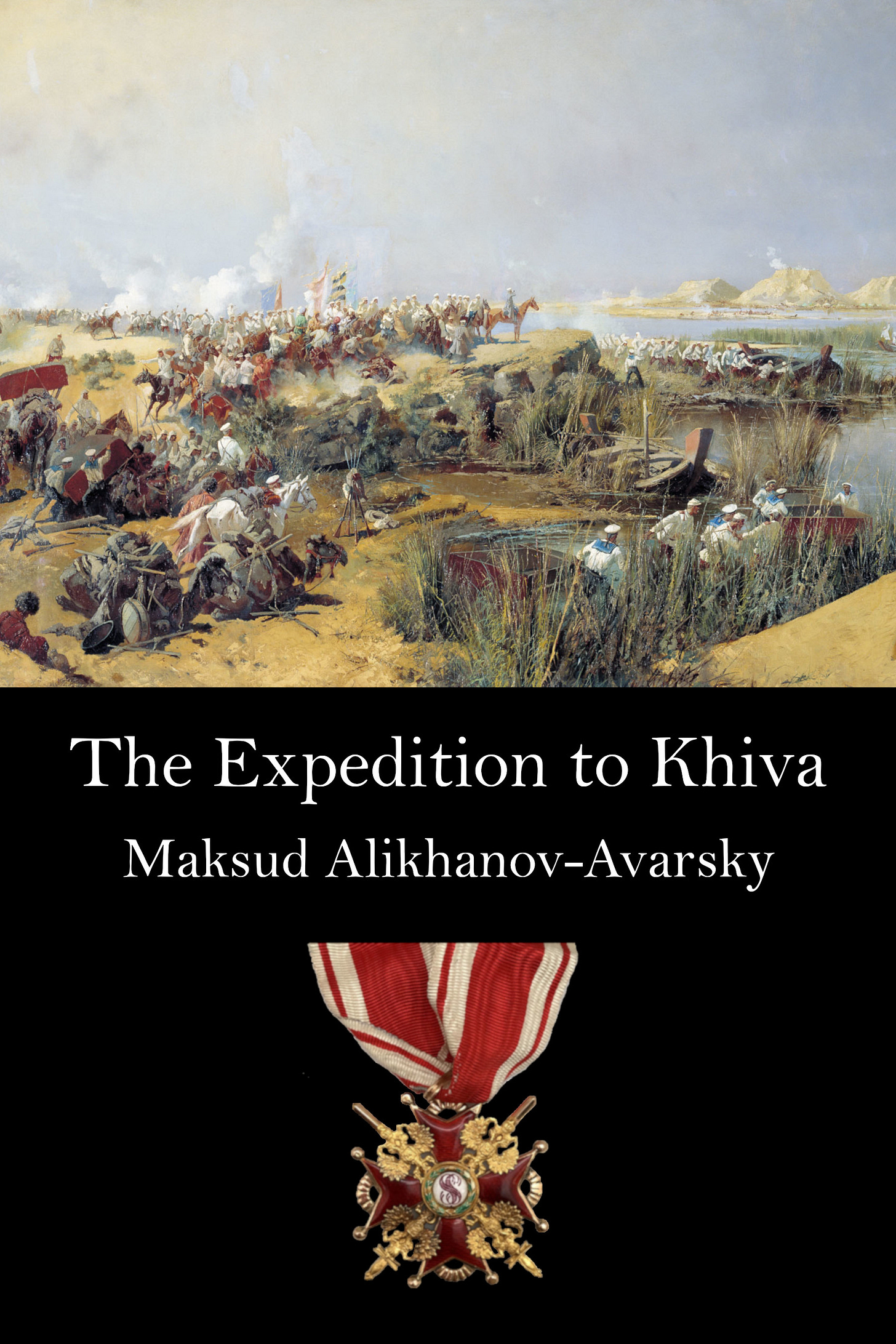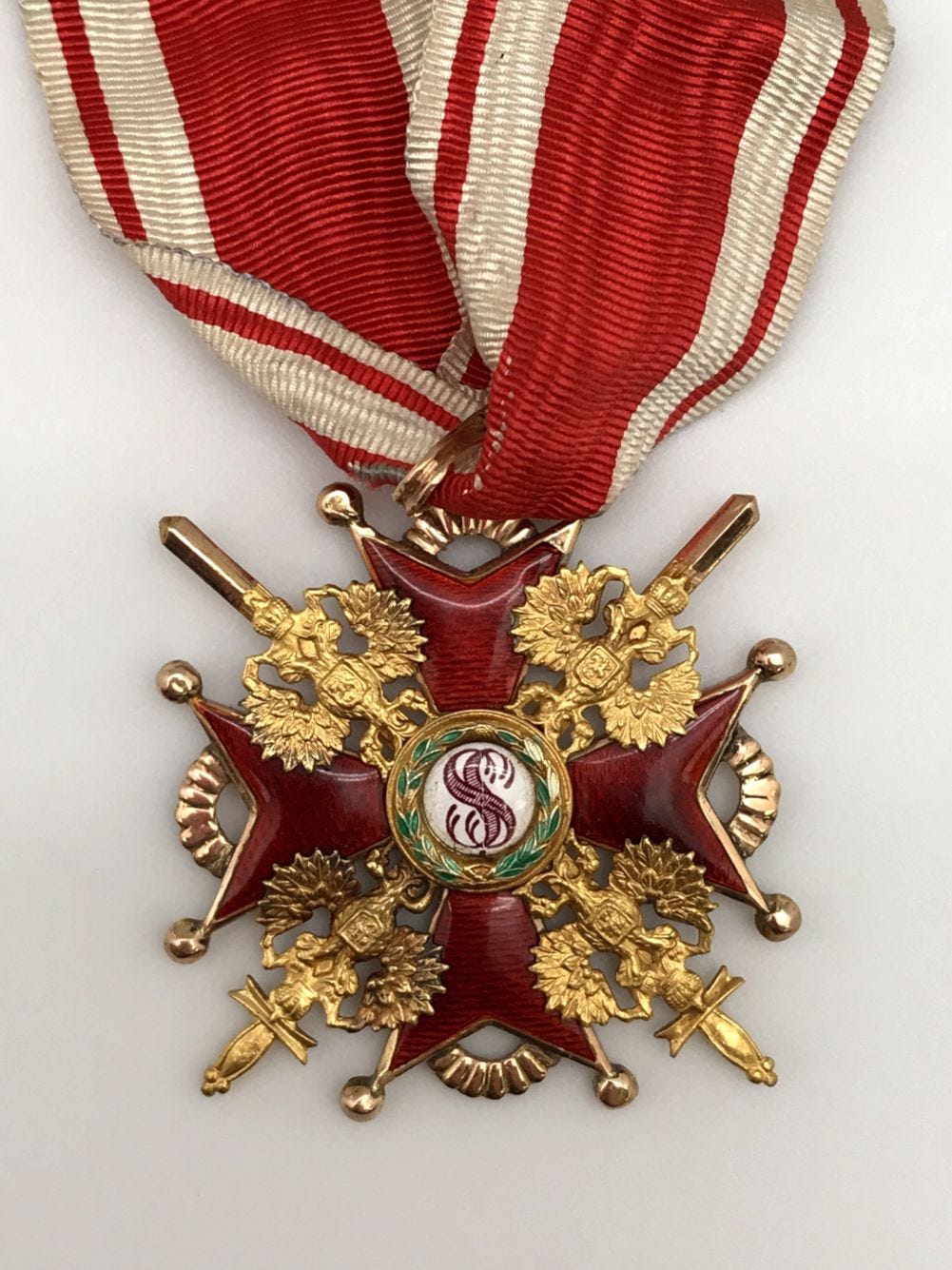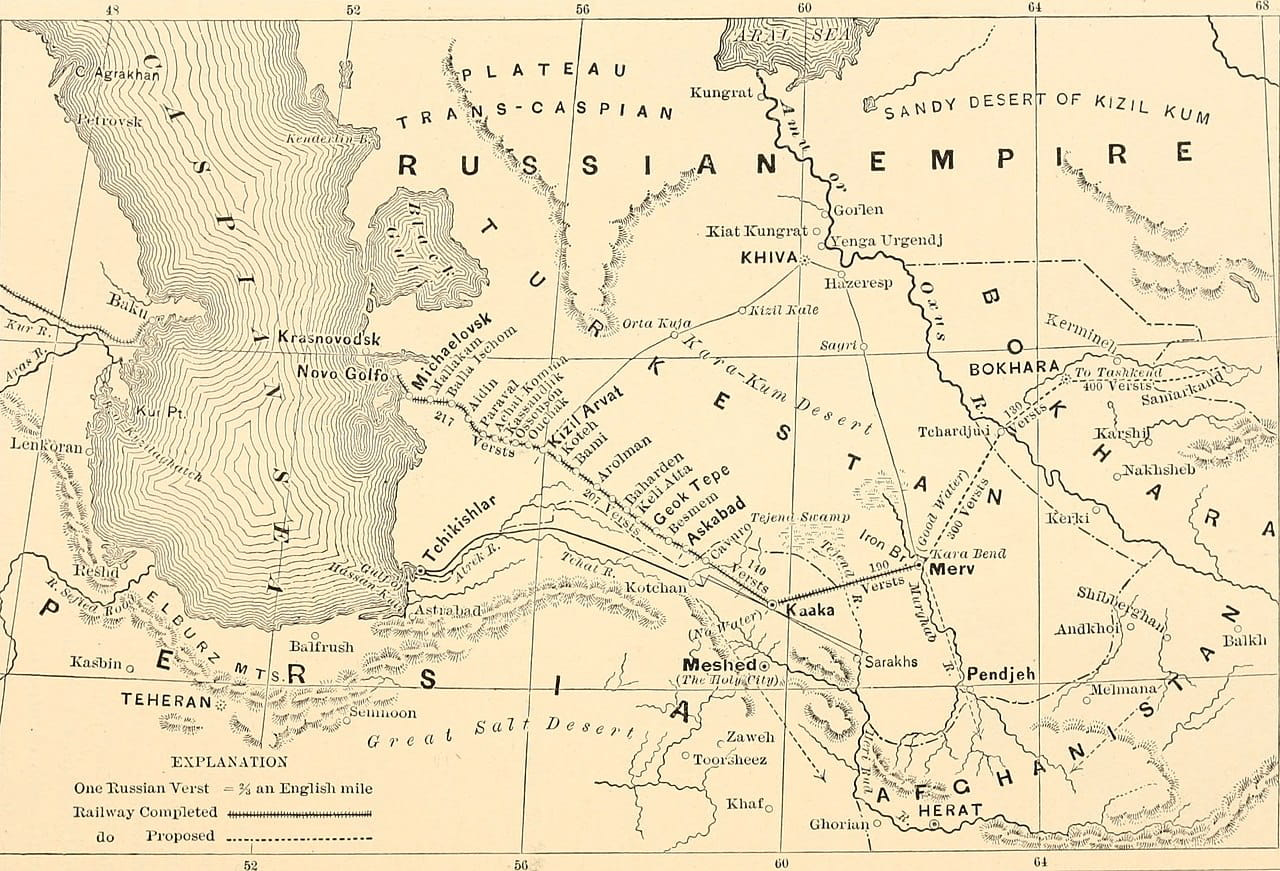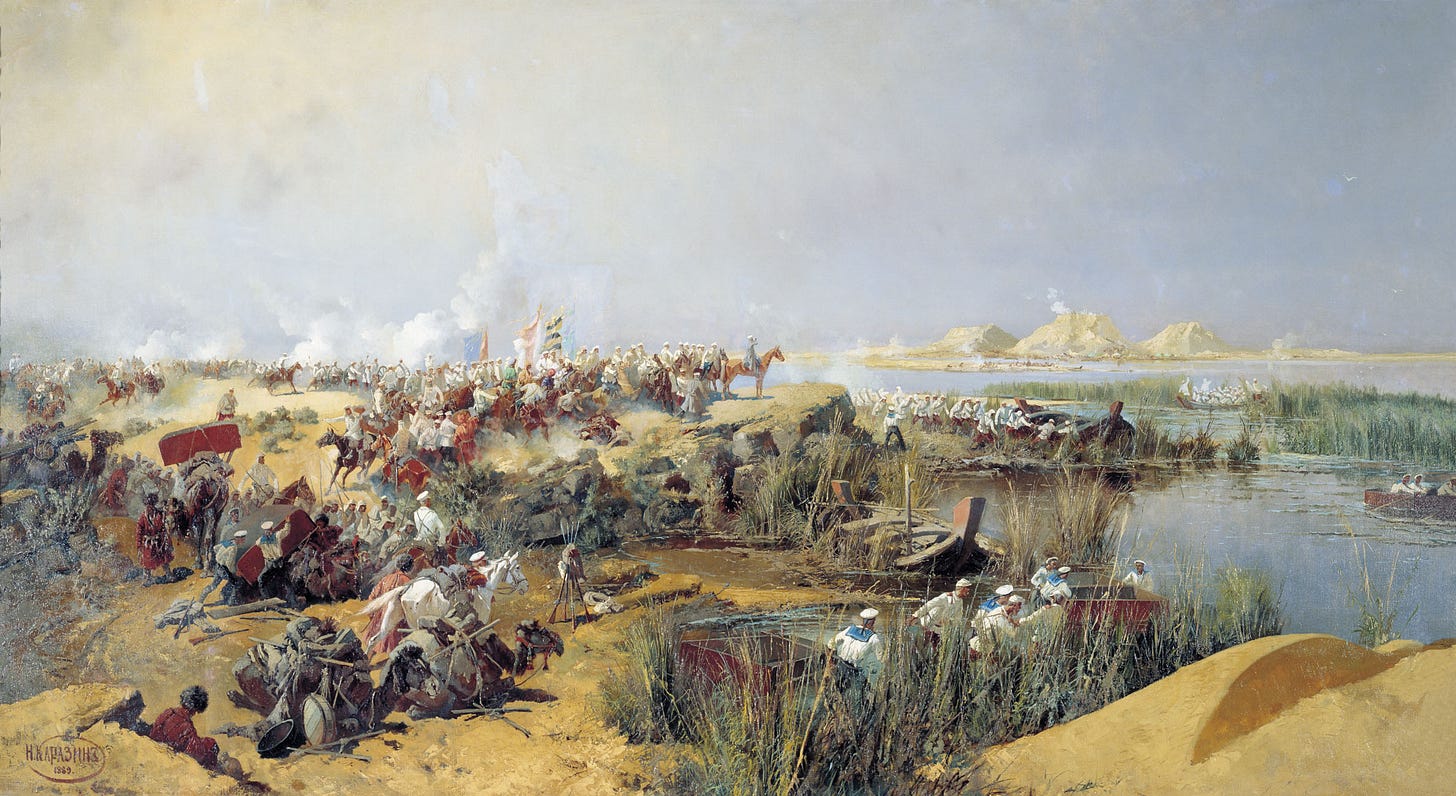Book Announcement: "The Expedition to Khiva" by Maksud Alikhanov-Avarsky
Buy "The Expedition to Khiva" Now!
Hello!
I am very proud to announce that my book, a translation of “The Expedition to Khiva” by Maksud Alikhanov-Avarsky, is now available on Amazon!!! The link to the book can be found here. The book is available in paperback and on kindle, and is available worldwide.
Along with the text itself, I have also included a 15,000 word introduction which provides historical context to the expedition, a history of Khiva and its foreign relations, and a detailed biography of the author, Alikhanov-Avarsky.
The book is a first hand account of Russia’s conquest of the Khanate of Khiva in 1873. The author, Maksud Alikhanov-Avarsky, was a native of Dagestan and an officer in the Imperial Russian Army. Written as a travel diary, the book is not merely a military text, but an adventure story which takes place on one of the Russian Empire’s most forbidden frontiers. Especially noteworthy, Alikhanov was fluent in the Turkic languages which allowed him to converse freely with the local Central Asians, including the Khan of Khiva himself. Thus, Alikhanov was able to report fascinating ethnographic information in his book, including the legends, culture and ways of life of the Kazakhs, Turkmen, Karakalpaks and Khivans.
I guarantee that anyone who enjoys my translation posts here will love this book.
“The Expedition to Khiva” follows the Caucasus detachment, one of the five Russian armies mobilized to attack Khiva, as it marches inland from the Caspian Sea, travelling across the barren wastes of the Ust-Yurt Plateau while leap frogging from well to well, before reaching the Aral Sea and Khivan oasis. There, the Caucasus detachment joins with other Russian forces and enters into a running battle with Khivan forces, before delivering the main blow against the Khanate itself.
The four other Russian detachments that marched on Khiva were the Orenburg detachment, which joined with the Caucasus one near Kungrad, the Kazalinsk and Turkestan detachments which joined together in the Kyzylkum desert, and the Krasnovodsk detachment, which also marched inland from the Caspian Sea and was similarly intended to join with the Orenburg force, but due to a severe lack of water it was forced to turn back half way along its journey.
With each detachment lead by ambitious and aggressive officers, all wishing to claim the glory of conquering the Khivan Khanate for themselves, the detachments essentially raced with each other to reach Khiva first.
The author Maksud Alikhanov-Avarsky was born in Dagestan in the village of Khunzakh in 1846, during the stormiest period of the Caucasus War, which raged on between the Russian Empire and the highlanders led by Imam Shamil, a charismatic leader who forged an Islamic fundamentalist state that succeeded in resisting the Russians for several decades. Shortly after Alikhanov’s birth his father defected to the Russian side, and for the first few years of his life he was a captive of Shamil’s. Later released as a part of a prisoner exchange, Alikhanov was sent to school first in Tbilisi, capital of Georgia, and then to Moscow.
In 1871 Alikhanov helped suppress a local uprising in the small village of Unkratl, near Dagestan’s border with Georgia and Chechnya, but his first real military experience came in 1873 with the Khivan expedition, where he served as a staff officer for special assignments.
Following the expedition Alikhanov was promoted to the rank of Major and was awarded the Order Saint Stanislav 2nd Degree.
The Khivan expedition was merely the first of many adventures that Alikhanov had in Central Asia. In 1879 he returned to Central Asia to scout the old river bed of the River Uzboi, an ancient branch of the Amu-Darya (known the Greeks as the River Oxus) which once flowed into the Caspian Sea. Later, he travelled to Persia and met Shah Naser al-Din and then spearheaded the incorporation of the Merv oasis in modern Turkmenistan to the Russian Empire in 1882. This was Alikhanov’s greatest achievement, and for the next eight years he served as the oasis’ governor-general. In 1885 he also participated in the Kushka Battle, known in England as the Panjdeh Incident, which nearly brought England and Russia to war. Due to his involvement in this battle and his command of the Merv oasis, which would have served as the jumping off point for Russian forces in a hypothetical invasion of Afghanistan and British India, Alikhanov became a subject of interest for the British and was profiled by the journalist George Dobson in his book “Russia’s Railway Advance into Central Asia.”
I learned of Maksud Alikhanov-Avarsky and his book “The Expedition to Khiva” from Alexander Morrison’s book “The Russian Conquest of Central Asia,” a book which I have discussed at length here in the past.
Without any exaggeration I can honesty say that “The Expedition to Khiva” is one of the best military and exploration memoirs/first hand accounts that I have ever read. The book is a really nice mix of adventure, action, exploration and ethnography. More than that, Alikhanov was quite the gifted writer who was able to effective convey both the mood among the soldiers and officers to the reader, as well as offering vivid descriptions of the landscape and people of Central Asia. One moment Alikhanov is describing the grueling march across desert wastes and the infinite strength of the Russians to endure it, and the next he is exploring ancient ruins they discover in the steppe, and later he speaking with native Central Asians, learning of their legends and the rumours that they have heard.
In short, the book is a classic military-adventure memoir in the tradition of Xenophon’s "Persian Expedition" and Caesar’s "Conquest of Gaul." A classic ‘Great Game’ text from the Russian perspective, I am very proud to announce that “The Expedition to Khiva” is finally available to the English speaking world for the first time!
Link to the book on Amazon.com can be found here again.
And thank you to all readers and anyone who purchases a copy. I have more projects underway and hopefully this book will be the first of many. Alikhanov wrote an addition 3-4 books, which I also plan to translate going forward. More immediately, I think next book will be a translation of a travelogue from the southern Altai Mountains, a region which I have worked on before.
Lastly, due to printing limitations, I was unable to include any maps or images in the book itself. Instead, I plan to post all of this material here in the upcoming days and weeks. Alikhanov drew about two dozen sketches of sites and scenes during the expedition, and this will be posted here as well.












Xenophon mentioned. Bought.
Thanks, will buy.